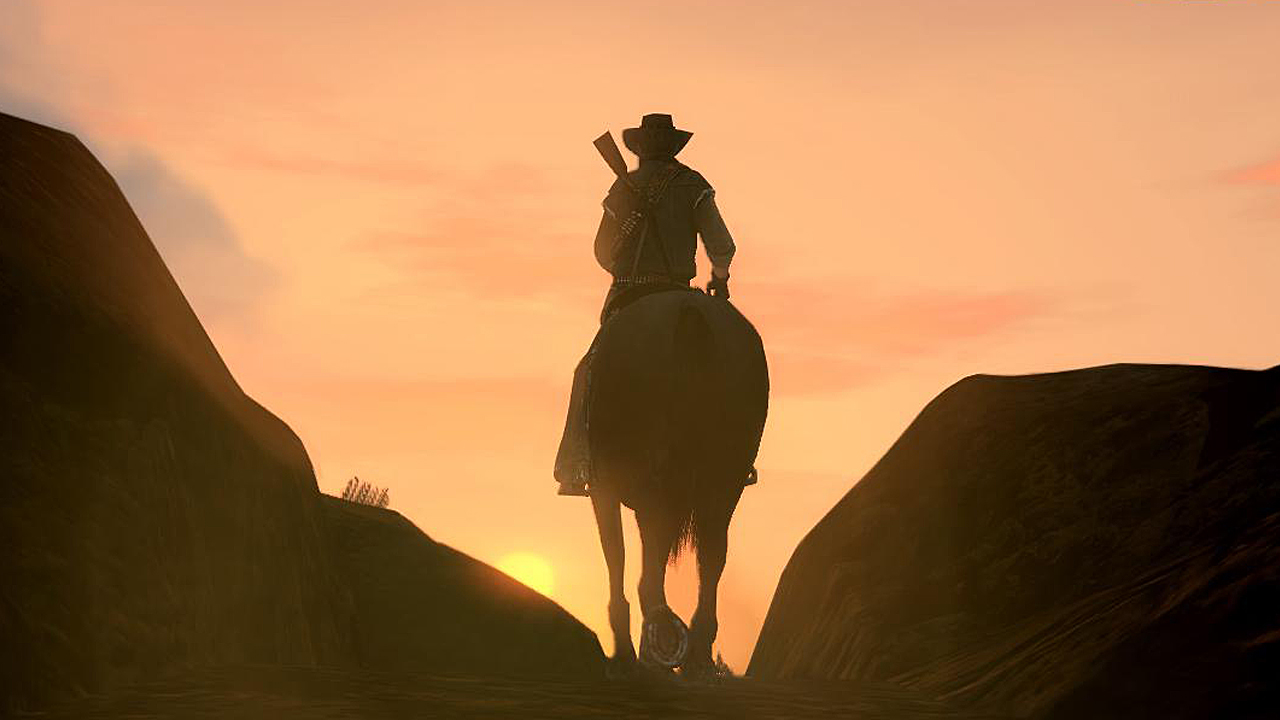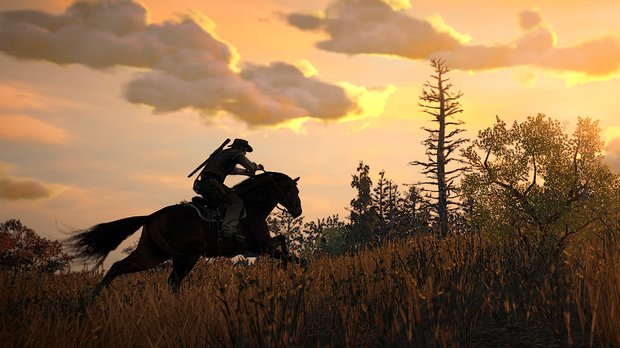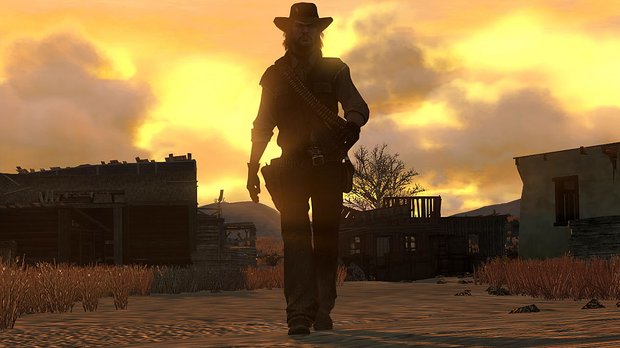Top 100: The magnificent melancholy of Red Dead Redemption
There are open-world games that are bigger. There are open-world games that are more detailed. There are open-world games that are more populated, more packed with things to do, and more technically proficient (floating horses, anyone?). But there aren't any better than Rockstar's 2010 cowboy epic. And while it's tempting to say that Red Dead Redemption is the premier sandbox experience in spite of those things, its pared back approach is actually one of its strongest suits – and what lends the game its enduring appeal.

While Just Cause chases carnage, Saints Row looks for laughs, and Assassin's Creed makes minimap markers its MO, Red Dead is content to step back and allow atmosphere and ambience to do the heavy lifting. That's not to say that the action isn't plentiful and exhilarating – witness the climactic arc of the Mexico section, or the final showdown with Dutch – but it's not what makes John Marston's journey linger long in our memories. What sets RDR apart is that it manages to nail that which almost no open-world game has ever achieved: true emotional investment. And it does so through a combination of that journey itself, the man undertaking it, and the plain upon which it unfolds.
John Marston, unlike almost any other sandbox star you care to name, is both a normal and decent man. Yes, you can make him hogtie innocents and dump them on railway tracks if that happens to be your particular psychopathic bag, but there's nothing in the setup itself to encourage that kind of behaviour. Rockstar's characterisation suggests a person – not a hero – willing to do unsavoury deeds to get his family back, yes, but not one who'd pull the legs off spiders just for fun (possible minigame in the sequel?). The events of Red Dead are driven by circumstance, not avarice or sociopathy.
And those events capture the perfect moment in one of the most romanticised periods of history – a genuine epoch during which the whole world was teetering on massive change. Just as you yourself begin in a wooden shack herding cattle and end in a brick-built town populated with automobiles, so too is the Wild West itself evolving and shifting its identity with every passing step. What's refreshing here is that you're not the architect of this change, kicking the chocks out from under the wheels of history as so many other games would have it; you're a helpless observer when it comes to the altering landscape, and a man whose very existence is threatened by the changes that he can't help to prevent.

That said, it's the deeply personal moments during the game that most strongly resonate. Rockstar knows the value of calm and of isolation, and it's the setting itself which lends Red Dead a large part of its emotional heft. Riding beneath the stars through a vast, deserted mesa with nothing but the howling of coyotes for company is beautiful not only in terms of the spectacle within the game itself, but in terms of the feelings it engenders within the player. It might be a stretch to say that a videogame could ever take one back to nature, but there's something primal stirred up by the sights and sounds of Redemption's world. From beneath that night sky can come a feeling of our infinite smallness within the cosmos, while trotting along the snow-lined rivers of West Elizabeth is enough to tempt anyone to divest their possessions and go live off the land.
Gaming is a form of escapism. But while the immediate temptation is to think that the escapism it provides should be in the form of overtly positive emotions – joy, satisfaction, a sense of achievement, and so on – Red Dead challenges this notion. John Marston's journey, and yours along with him, is an intrinsically lonely one, and there's a deep melancholy to both the man himself and the world he inhabits. His unrequited connection with Bonnie is all too reminiscent of those that crop up in each of our lives, while the tragic tales of the people he tries – and frequently fails – to help are a far cry from the satirical irreverence of taking down a social media empire in GTA V. While beautiful, there's very little cheery about the American Frontier that you pass back and forth across, and it's as likely to make you feel sombre as it is uplifted. Uncomfortable all of this may be, but it should be embraced regardless – at least we're feeling something, and something that's all too readily ignored.
It would be remiss to end without touching on some specific moments, for within this one masterpiece are packed some of the most evocative instances in the history of the genre – and possibly gaming itself. The passage into Mexico is quite simply perfect, subverting your expectations via its use of the soundtrack (about which alone epic poems could be written) and aligning itself with that melancholic atmosphere of which I've just talked. Then there's the frantic horseback ride into the arms of your family, which again uses music masterfully and imbues the player with the same frenzied desire for reconciliation that our cowboy is feeling.
Weekly digests, tales from the communities you love, and more

And, of course, that entire final chapter, in which John bookends his journey by going back to the menial tasks with which it started – only this time they're not about teaching the player, but rather are there to hammer home the fact that this entire odyssey was undertaken simply to regain the status quo. Marston never set out to be a hero, only to take back what he once had. As for the post-credits sequence, in which the developer provides no guidance as to what is left to discover? Well it's simply one of the most bold and brilliant bits of design I've seen in the medium.
Taken at a surface level, Red Dead Redemption still deserves to be held up as one of the finest games of all time, and it resonates as strongly now as it did five years ago. But for me its true brilliance transcends what it does as a game: it comes down to what it can evoke in those who play it. Like the novels of Cormac McCarthy, which unflinchingly chronicle the brutality of a time and place while teasing out universalities related to the human condition, the desolate nature of Red Dead's backdrop and characters fosters emotions which go far beyond the game itself. And how often have you ever played something about which you can say that?



